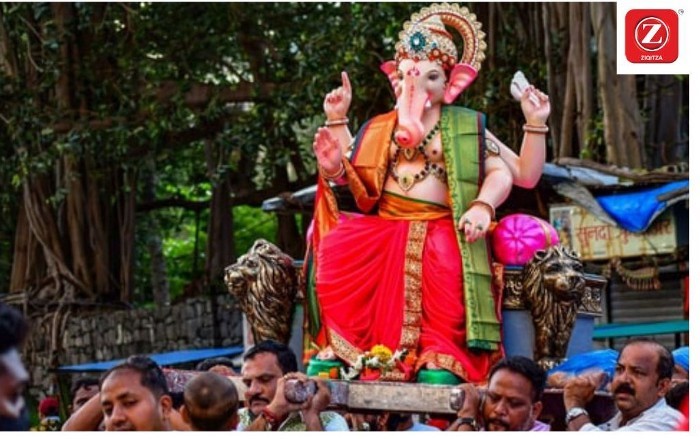India is all set to welcome festivals with open arms beginning with Ganesh Chaturthi, followed by Navratri and Diwali. The long season of festivals, coupled with dipping temperature has started the annual series of incidences of allergies. Ziqitza Healthcare Ltd – country’s leading healthcare service and emergency service providers remarks that festivals along with joy, happiness and also bring with it a slew of allergies which is recorded every year.
Increased cases of allergies during the festivals can be easily attributed to increased usage of large amounts of flowers, which can easily release pollen in the air triggering a host of skin and respiratory allergies. Ziqitza Healthcare adds that varied weather conditions such as a cocktail of dry, cold and humid conditions, act as a perfect catalyst for triggering allergic reactions, asthma attacks, and other viral fevers.
India will begin to celebrate an array of festivals in the coming months starting from Bonalu, Vinayaka Chaturthi and Bathukamma. The revelers during the festivities come in close contact with various kinds of flowers and weeds, which flares up allergic reactions. Ziqitza mentions that the most common allergic reactions are skin allergies like rashes, itching and respiratory allergies like breathlessness and asthmatic conditions, and nasal allergies like increased sneezing. Experts at Ziqitza Rajasthan point out that during winters, the cold air, mite, house dust and mould aggravate allergic reactions. Asthamatic episodes in children are largely reported during the winters because the cold and dry climate act as perfect hosts for allergies.
Diwali is the most awaited festival of the year and it is just round the corner. The night sky on Diwali adores the most spectacular hues and colours when bright crackers spread out over the horizon. The whole country celebrates the return of Lord Rama after 14 years of exile and his victory over the demon king of Lanka, Ravana. The entire house is lit with diyas, candles, lanterns, and decorated with rangolis and flowers. Bursting crackers is an integral part of celebrating the festival, however in recent years a blanket ban on crackers has been put owing to their massive contribution in increasing air pollution. Despite the ban, the revelers still burst crackers and continue to pollute the air and in return trigger allergic reactions.
Ziqitza Limited expands that as people burst crackers on Diwali, air pollution levels significantly increase releasing a gargantuan amount of heavy metals such as potassium chlorate, arsenic sulphide, sulphur, copper and aluminum in the air. These high levels of residual particulate matter and suspended particulate matter worsen the allergies triggering asthma attacks and causing skin allergies, eye and nasal cavity allergic reactions.
Increased percentage of air pollution post Diwali triggers a train of allergies. Therefore, ZHL Rajasthan, says that it is absolutely essential that people who are allergic must prepare beforehand for it. They should avoid coming in contact with firecrackers. Dust and pollutants from the firecrackers take a minimum of three days to subside which is more than enough time to create havoc for people with allergic history. These pollutants cause or aggravate allergic conditions such as bronchitis, bronchial asthma, allergic rhinitis, sinusitis, chronic obstructive pulmonary diseases, etc. Ziqitza Limited Rajasthan, further expands that different chemicals emitted from the firecrackers cause different kinds of allergies. For example, nitrogen oxide causes eye problems, skin irritations and respiratory issues in children. Sulphur dioxide causes severe damaging effects to the lungs along with wheezing and breathlessness.
Ziqitza Healthcare Limited advises that people suffering from bronchitis and asthma must increase the intake of their medicines during this period, so as to minimize the harmful effects of the dust, smoke and chemicals in the air. It is advised for people with allergic and respiratory conditions to avoid contact with allergens during festivals and follow precautions to keep themselves safe from allergies. Patients suffering from bronchitis and asthma must keep their face covered either by a handkerchief or a mask, and must always carry their medications and inhaler.
Similarly, people with diabetes must try to avoid sweets and keep their sugar levels in check. They must always carry their medications and insulin with them in case of a drop-in sugar levels or emergencies.


